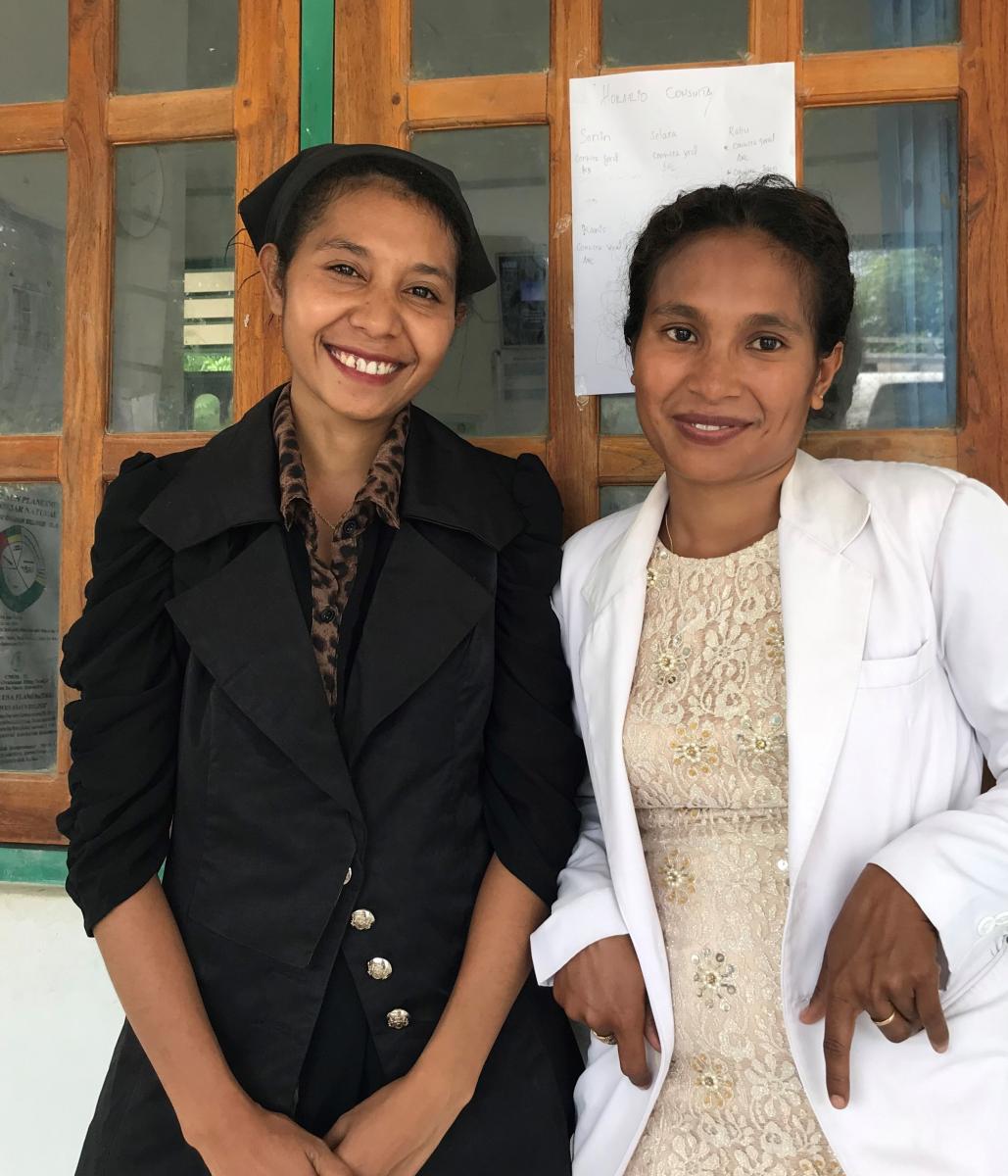Enabling and Elevating Midwives with “Whole-System” Support

Wellbeing Foundation Africa MamaCare Midwife Rita Momoh & Founder-President H.E. Toyin Saraki at a MamaCare class in Abuja, Nigeria. Photo credit: Wellbeing Foundation Africa.
This year’s theme for the International Day of the Midwife, commemorated on May 5, is “Midwives: Defenders of Women’s Rights.” This includes the right for every midwife—and all health workers—to decent work and a safe and dignified workplace. Saving lives does not mean a midwife should risk her own. We hear stories of too many midwives burnt out, from not just the long hours guiding families through their complex and unpredictable travails, but from the lack of basic infrastructure or professional support to deliver high-quality care. Behind every miraculous and unique birth, every interaction between a midwife and her clients, the midwife’s “whole system” must be strong and supportive.
Let us support a midwife to reach her fullest potential by supporting her “whole system”:
Access to water, sanitation and hygiene (WASH): Midwives need clean water to facilitate a safe and healthy delivery and support families’ sanitation and hygiene needs across their lives. Whether in Nigeria or Timor-Leste, we have witnessed midwives who must pull buckets of water up from wells themselves; purchase their own examination gloves; chase livestock out of the health center compound for lack of a proper fence; or dig makeshift pits to dispose of medical waste.
In the words of midwife Rita Momoh, “it is not possible for us to do our jobs as midwives without access to water, sanitation, and handwashing stations.”
Progress in reducing neonatal mortality is slower than in mortality among children aged 1–59 months. In many West African countries, data provided by UNICEF indicates that between 15 to 20% of newborn deaths in their first month of life are due to sepsis. According to the World Health Organization, improved access to WASH and improved handwashing for all health workers could help prevent infections, and the risk of sepsis in health facilities.
Adequate tools, equipment, and medicine: All midwives should have the supplies and commodities needed to provide timely, high-quality care. Effective supply chain management and procurement is needed so she can access life-saving medicines. Challenges are related to drug selection, registration, quantification, procurement, storage and distribution, quality assurance, and information systems.
If 13 essential reproductive and maternal health-related commodities were more widely available, it is estimated that the lives of over 6 million women and children could be saved.
A positive and safe social environment: For many rural midwives, they represent the sole point of access to health care in remote and underserved areas. When communities are engaged with midwives to develop a strong and trusting relationship, to provide feedback about their perceptions of the care she delivers, and even to encourage and support her by providing living quarters, clean water, or planting her a vegetable garden, they demonstrate their understanding and appreciation of her contributions.
A midwife’s workplace should also be free from sexual harassment and gender discrimination. According to a global survey conducted by the International Confederation of Midwives and the WHO, 37% of midwives reported that they have experienced harassment at work, whether from colleagues or patients. Effective interprofessional collaboration is also important to keeping midwives’ workplaces safe.

Midwife Dulcia Madalena da Silva (at left) with her colleague Dr. Beatriz da Costa (at right) at the Lamalai Health Post in Timor-Leste in March 2019. Photo credit: HRH2030/Chemonics International.
Professional careers guided by data-driven human resources management: Health system managers, supervisors, and policymakers need to better support midwives throughout their careers: from planning (e.g., a midwife’s recruitment and deployment to a post), to providing supportive supervision and clinical mentoring and amplifying midwives’ leadership roles.
Where midwives’ human resources metrics are not tracked, they cannot be managed. Thus, more data on midwives is needed: from midwifery schools on graduate profiles; from professional associations or councils on licensure, registration, and continuing professional development; and routine, robust, and up-to-date human resource information systems. In addition, midwife-generated data streams can provide valuable feedback on how services are delivered and promote service improvements.
Vertical segregation, where female health workers do not advance to higher leadership and remuneration as their male counterparts, remains a challenge within primary health care and health systems. More evidence is needed to understand how midwives’ enhanced leadership role can optimize health systems.
This International Day of the Midwife, let us support midwives’ “whole system” so they can be the change agents that our world needs.
